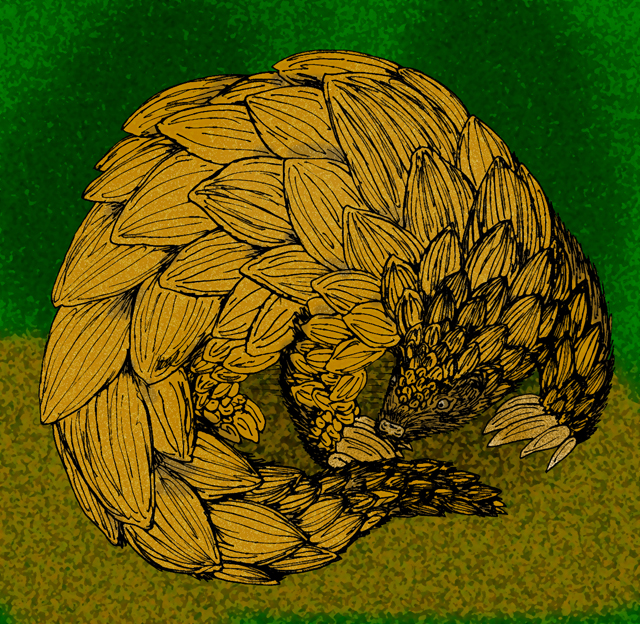Welcome to Facts Vibes! Get ready to dive into the fascinating world of pangolins. From their unique armor-like scales to their specialized diet of ants and termites, these elusive creatures have plenty of surprises in store. Let’s uncover some fun facts about pangolins that will leave you amazed.
The Fascinating World of Pangolins: Discovering Intriguing Fun Facts
The Fascinating World of Pangolins is filled with intriguing fun facts that never fail to captivate the curious mind. These unique creatures are the only mammals covered in scales, making them stand out among all other animals. Their scales, which are made of keratin, serve as a protective armor against predators and are also used in traditional medicine in some cultures.
One of the most fascinating fun facts about pangolins is their incredible ability to roll up into a tight ball when they feel threatened. This natural defense mechanism provides them with a remarkable form of self-protection. Additionally, pangolins have remarkably long tongues—sometimes longer than their own bodies—which they use to slurp up ants and termites, their primary sources of food.
Pangolins are also known for their solitary nature, preferring to roam and forage alone in the wilderness. Unfortunately, these enchanting creatures are facing serious threats from illegal trafficking and habitat loss, making them one of the most endangered species on the planet.
Exploring the fascinating world of pangolins unveils a myriad of captivating fun facts that showcase the incredible uniqueness of these animals. From their distinctive scales to their solitary habits, pangolins continue to intrigue and inspire awe.
Most popular facts
Pangolins are the only mammals covered in scales.
True.
There are eight species of pangolins, four in Asia and four in Africa.
There are eight species of pangolins, four in Asia and four in Africa.
They are often referred to as “scaly anteaters” due to their diet of ants and termites.
Pangolins are often referred to as “scaly anteaters” due to their diet of ants and termites.
Pangolin scales are made of keratin, the same material as human hair and nails.
True, pangolin scales are made of keratin, the same material as human hair and nails.
They can consume up to 20,000 ants and termites in a single day.
They can consume up to 20,000 ants and termites in a single day.
Pangolins are considered the most heavily trafficked mammal in the world due to illegal trade for their scales and meat.
True.
They are solitary animals, primarily active at night.
They are solitary animals, primarily active at night.
Pangolins can close their ears and nostrils to keep out ants and termites while feeding.
Pangolins can close their ears and nostrils to keep out ants and termites while feeding.
Their tongues can be longer than their entire body length, up to 16 inches.
Some animals have tongues that can be longer than their entire body length, up to 16 inches.
When threatened, pangolins can roll into a tight ball, using their scales as armor.
Pangolins can roll into a tight ball and use their scales as armor when threatened.
Pangolins have no teeth, instead they have strong stomach muscles and gizzards to grind up their food.
Pangolins have no teeth, instead they have strong stomach muscles and gizzards to grind up their food.
The gestation period for pangolins can last from 70 to 140 days, depending on the species.
The gestation period for pangolins can last from 70 to 140 days, depending on the species.
Pangolins are considered one of the rarest and most elusive animals in the wild.
True. Pangolins are indeed considered one of the rarest and most elusive animals in the wild.
They play a vital role in controlling insect populations in their natural habitats.
Predators play a vital role in controlling insect populations in their natural habitats.
Pangolins can emit a strong, musky odor as a defense mechanism against predators.
Sure! Pangolins can emit a strong, musky odor as a defense mechanism against predators.
In conclusion, pangolins are fascinating creatures with a rich tapestry of interesting traits and behaviors. It is crucial that we continue to raise awareness about the plight of these endangered animals and work towards their conservation and protection. Let’s cherish and protect these unique creatures for future generations to enjoy.
